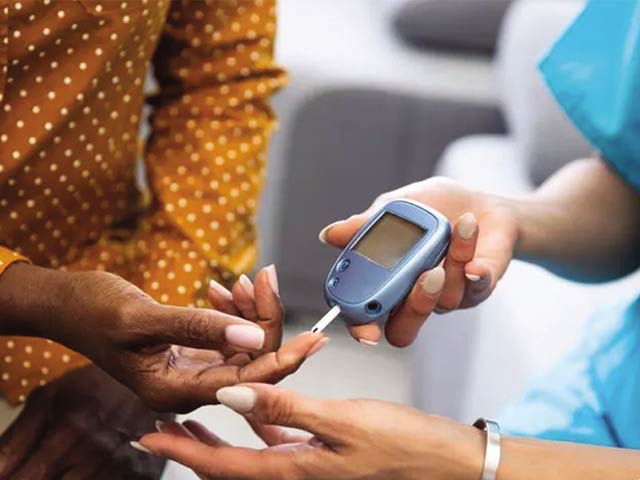Diabetes, commonly known as ‘sugar’ disease, is usually divided into two types, type 1 and type 2, but scientists now say that there are five different types of diabetes, each of which can be treated differently. .
Scientists from Sweden and Finland believe that the more complex picture they have uncovered will help patients with diabetes to choose a drug based on their disease.
Experts say the research is critical to future diabetes care, but it won’t change treatment immediately. About one in 11 adults worldwide has diabetes and is at risk of heart attack, stroke, vision impairment or kidney failure.
Type 1 Diabetes: This is a disease of the immune system. It attacks the human body’s insulin factories (beta cells) so that the body cannot produce enough of this hormone to control blood sugar levels.
Type 2 diabetes: This is usually linked to lifestyle because body fat affects the way insulin works.
Blood samples from 14,775 patients were analyzed in detail during a joint study by the Diabetes Center of Lund University in Sweden and the Institute of Molecular Medicine in Finland. The results of this study, published in the medical journal Lancet, show that these patients can be divided into five groups.
Group 1: Severe ‘autoimmune’ diabetes is similar to traditional type 1. It attacks patients when they are young and apparently healthy, but the disease targets their immune system and prevents them from producing insulin.
Group 2: Patients with severe insulin deficiency diabetes initially appear similar to group 1 patients. They are young, have a healthy weight, but the body does not produce insulin even though the immune system is healthy.
Group 3: Patients with this type of diabetes are overweight and their body produces insulin, but it does not work.
Group 4: People with obesity-related diabetes are those who are overweight but metabolically closer to group 3.
Group 5: Patients with age-related diabetes develop symptoms at a later age than other groups and their disease is also less severe.
‘This is hugely important and we are taking a real step towards targeted medicine,’ Professor Leif Group, who was involved in the research, told the BBC. They say that the three severe types can be controlled with more aggressive drugs than the two mild types.
Group 2 patients are classified as type 2 diabetics under the current classification, but new research suggests their disease is related to beta cells, not obesity, and is therefore treated with type 1 diabetes. Should be patient style.
Similarly, group 2 patients are more likely to be diagnosed than other patients, while group 3 patients are most likely to develop kidney failure.
Dr Victoria Salem, from Imperial College London, says this is certainly the future of diabetes as a disease. However, they also say that this study will not change the current treatment method. According to them, “This study was conducted on a second-nevian population, while diabetes varies around the world, such as the risk in South Asians.” There is more.” (Courtesy of BBC Urdu)
(function(d, s, id){
var js, fjs = d.getElementsByTagName(s)[0];
if (d.getElementById(id)) {return;}
js = d.createElement(s); js.id = id;
js.src = “//connect.facebook.net/en_US/sdk.js#xfbml=1&version=v2.3&appId=770767426360150”;
fjs.parentNode.insertBefore(js, fjs);
}(document, ‘script’, ‘facebook-jssdk’));
(function(d, s, id) {
var js, fjs = d.getElementsByTagName(s)[0];
if (d.getElementById(id)) return;
js = d.createElement(s); js.id = id;
js.src = “//connect.facebook.net/en_GB/sdk.js#xfbml=1&version=v2.7”;
fjs.parentNode.insertBefore(js, fjs);
}(document, ‘script’, ‘facebook-jssdk’));



